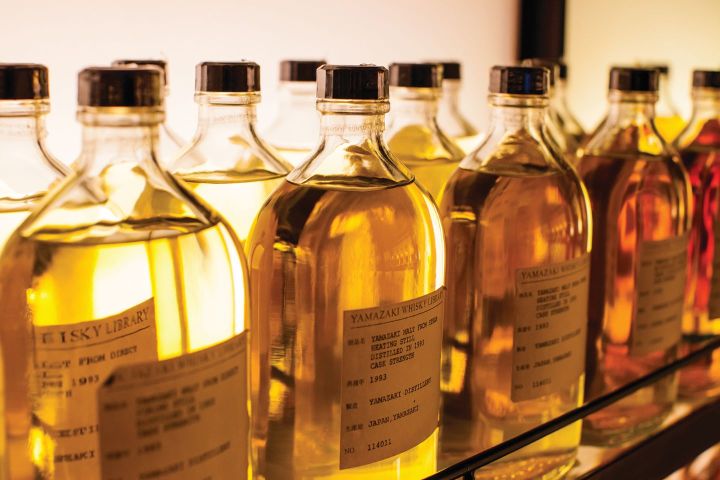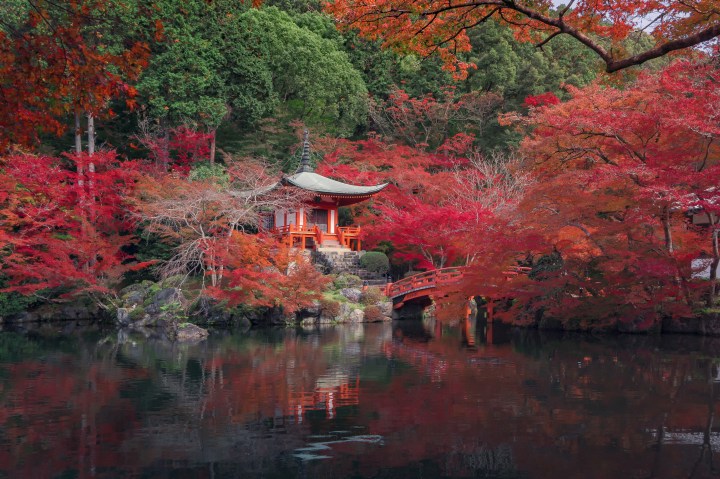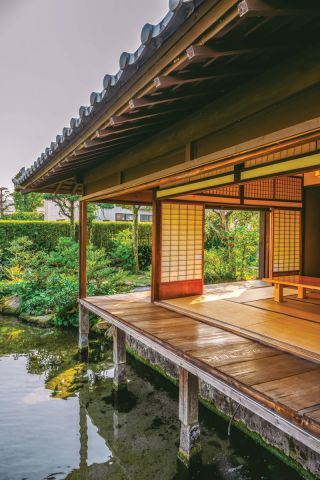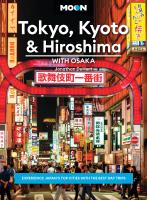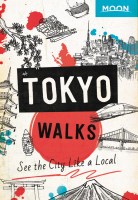The Best Onsen (Hot Springs) in Japan
Few places on earth have elevated bathing to an art as much as Japan. Like eating sushi, glimpsing Mount Fuji, or visiting a shrine, sinking into the hot, rejuvenating waters of an onsen (hot spring) bath is a singular pleasure that should be high on your
list on any trip to Japan. Blessed (or cursed?) with roughly 10 percent of earth’s volcanoes, Japan has seemingly infinite pools where steam wafts, the distinct smell of sulfur lingers, and people flock to steep in the geothermally heated waters. All told, there are about 3,000 onsen resorts in Japan today, with both indoor and outdoor pools, often looking onto gorgeous natural scenes: mountains, forests, crashing waves. Below are some of the best.
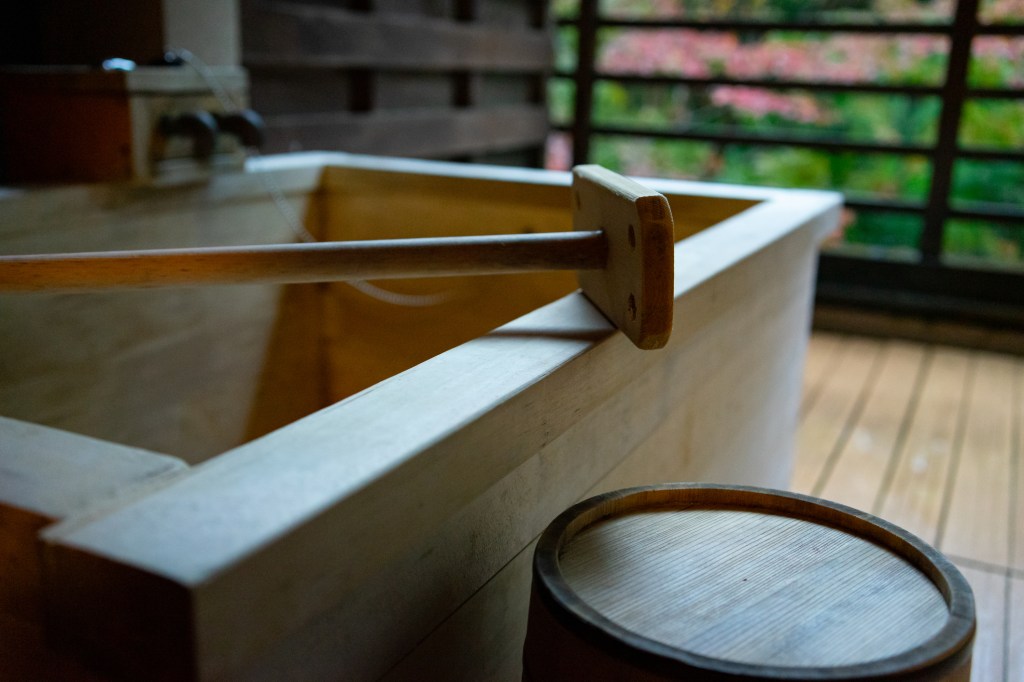
Hakone Yuryō Onsen
For a classic countryside onsen experience within easy reach of Tokyo, Hakone Yuryō
Onsen ticks all the boxes. Surrounded by lush, forested hills, the outdoor baths are excellent, with serene views on all sides and baths ranging from large single-sex communal pools to 19 private open-air ones rented for 2 hours. Book a private bath up to a month in advance by phone. Alongside baths, massages are offered in relaxation rooms, and an on-site restaurant serves food cooked over an irori (open hearth). As is the case with most onsen, if you’re sporting any ink you will need to keep it under wraps at the reception desk. Further, the communal baths will not be an option. Conceal what tattoos you have until reaching your reserved private bath, however, and you’ll still be able to enjoy the experience.
Shin-Hotaka-no-Yu
This public riverside rotenburo (open-air bath) is, awkwardly, visible from a nearby
bridge. Moreover, it’s a mixed-gender pool. But none of this stops adventurous onsen connoisseurs from stripping down and sinking in. If you’re not shy, give it a try and you’ll be rewarded. The sound of the river resonates in the bathing area, while pebbles covering the floor of the pool massage the soles of your feet. Mountains covered in spindly foliage rise from both riverbanks. Before you enter the pool, just be sure to enter through the correct-gendered changing room, and use a small privacy towel while walking outside the pool for courtesy’s sake.
Nyūtō Onsen
Nyūtō Onsen (“nipple hot spring”) is a cluster of onsen ryokan tucked away in the mountains of Akita Prefecture, within the southern Hachimantai portion of Towada-Hachimantai National Park. The onsen’s suggestive name was inspired by the cloudy tint of the water running under the ground in the area, said to resemble, ahem, milk. The baths are not the private property of the inns; rather, daytrippers are permitted to use them during select hours for a fee. Mixed bathing is permitted in many of them—with privacy towel, of course—though gender-segregated baths are also available.
Kurokawa Onsen
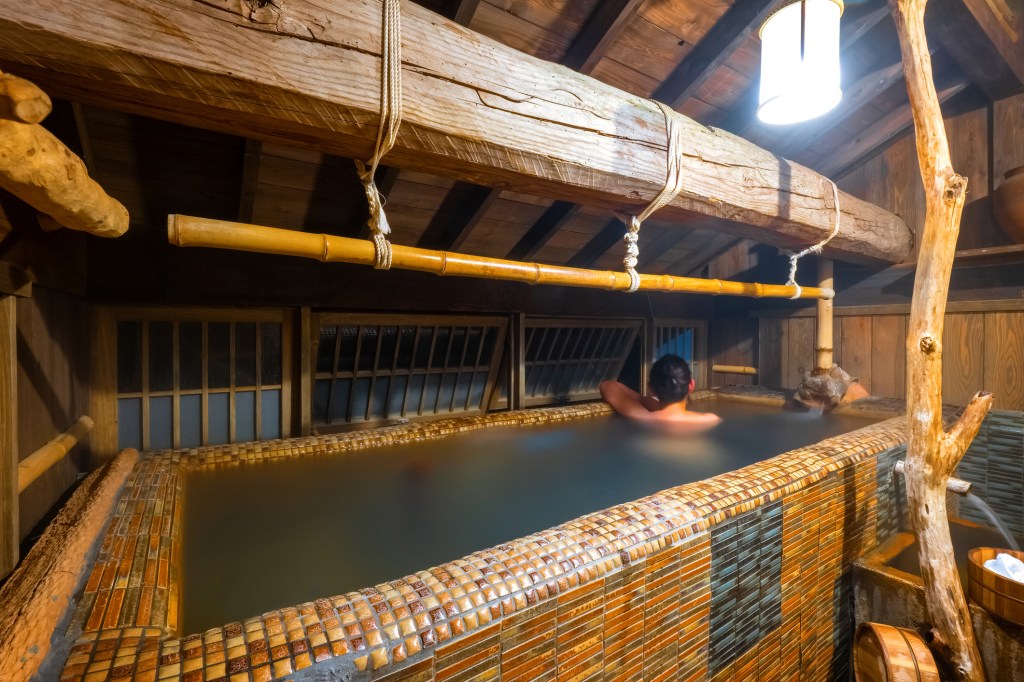
Kurokawa Onsen is an understated mountaintop gem, easily ranking among Japan’s most atmospheric hot spring towns. All told, 24 rotemburo (open-air public baths) dot the town, which has a number of rustic public bathhouses as well. Some highlights, all of which double as exquisitely traditional ryokan serving kaiseki meals, include:
- Kurokawa-sō (6755-1 Manganji; tel. 0967/44-0211; ¥22,000 pp with 2 meals)
- Shinmei-kan (6608 Manganji; tel. 0967/44-0916; ¥35,200 d with 2 meals)
- Fujiya (6541 Manganji; tel. 0967/48-8117; ¥46,200 d with 2 meals)
Information and Services
A nyūto tegata (wooden onsen pass) gives you access to the rotenboro (open-air baths) of any 3 of 24 participating onsen ryokan. You can pick up one of these passes at the Kurokawa Onsen Ryokan Association Information Center or at the reception desk of any of participating ryokan.
Newsletter Signup
By clicking ‘Sign Up,’ I acknowledge that I have read and agree to Hachette Book Group’s Privacy Policy and Terms of Use
Pin it for later



